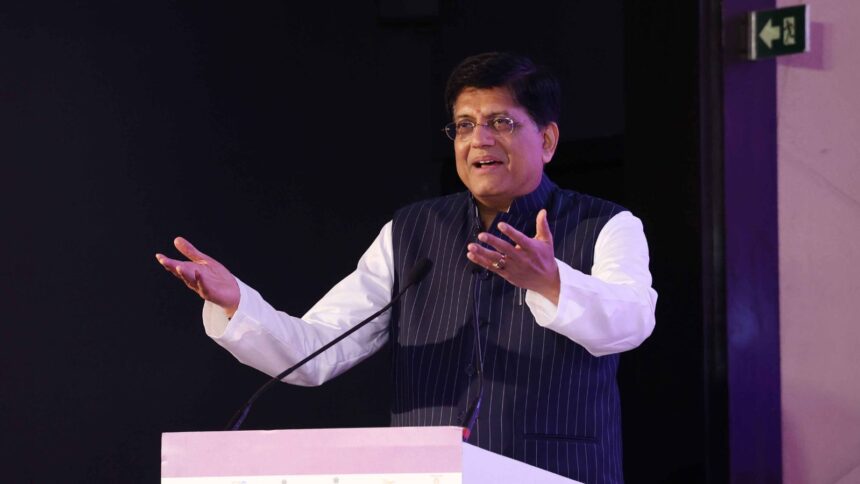A “large Indian trade” delegation led by Union Commerce Minister Piyush Goyal is set to visit the US for talks next week to potentially finalise the contours of an interim trade agreement between the two countries, a senior government official said Thursday.
The fresh round of trade talks with the US assumes significance as it follows the conclusion of a surprise that saw substantial reductions in the “tit-for-tat” tariffs.
“The deal has only resulted in a de-escalation of tensions. But substantial tariffs on China remain. India is focusing on its competitiveness,” an official said in response to a question on the impact of the US-China deal on India.
On the recent action by India to propose retaliatory tariffs against the 25 per cent US duties on steel and aluminium at WTO, the official said that India aimed to reserve the right to retaliate even as negotiations with the US were ongoing. Another official explained that India needed to approach the WTO within 90 days of the US tariffs to retain its right to retaliate.
Notably, Indian steel exporters had told the government that US tariffs have impacted nearly $5-billion worth of exports.
The thaw in US-China tension, which came as a surprise to many in trade policy circles, is seen as a setback for “China-plus-one” countries — such as India — which may now see fewer benefits from a trade deal with the US than previously anticipated.
Though New Delhi initiated trade talks with Washington earlier than Beijing, China quickly resolved key sticking points with the US and sealed an interim deal.
Earlier on Thursday, US President claimed that India had “offered to drop all tariffs” on the US during negotiations. However, External Affairs Minister S Jaishankar said that any trade deal must be mutually beneficial.
“A trade deal has to work for both countries. That would be our expectation from any trade deal. Until that is done, any judgment will be premature,” Jaishankar said at the opening of Honduran embassy in New Delhi.
Speaking at a business leaders’ forum in Doha earlier in the day, Trump had said, “It is very hard to sell in India… they are offering a deal… willing to literally charge us no tariffs.”
had reported that US demands during the negotiations centred on greater market access, particularly for automobiles, whisky, and certain agricultural products. Indian negotiators, meanwhile, sought improved access for labour-intensive sectors such as textiles and leather.
On digital trade, the US is pushing for greater data access and is challenging India’s strict data localisation rules, which require Indian data to be stored domestically. During Trump’s first term, disputes over data localisation were a major source of friction between the two nations.








